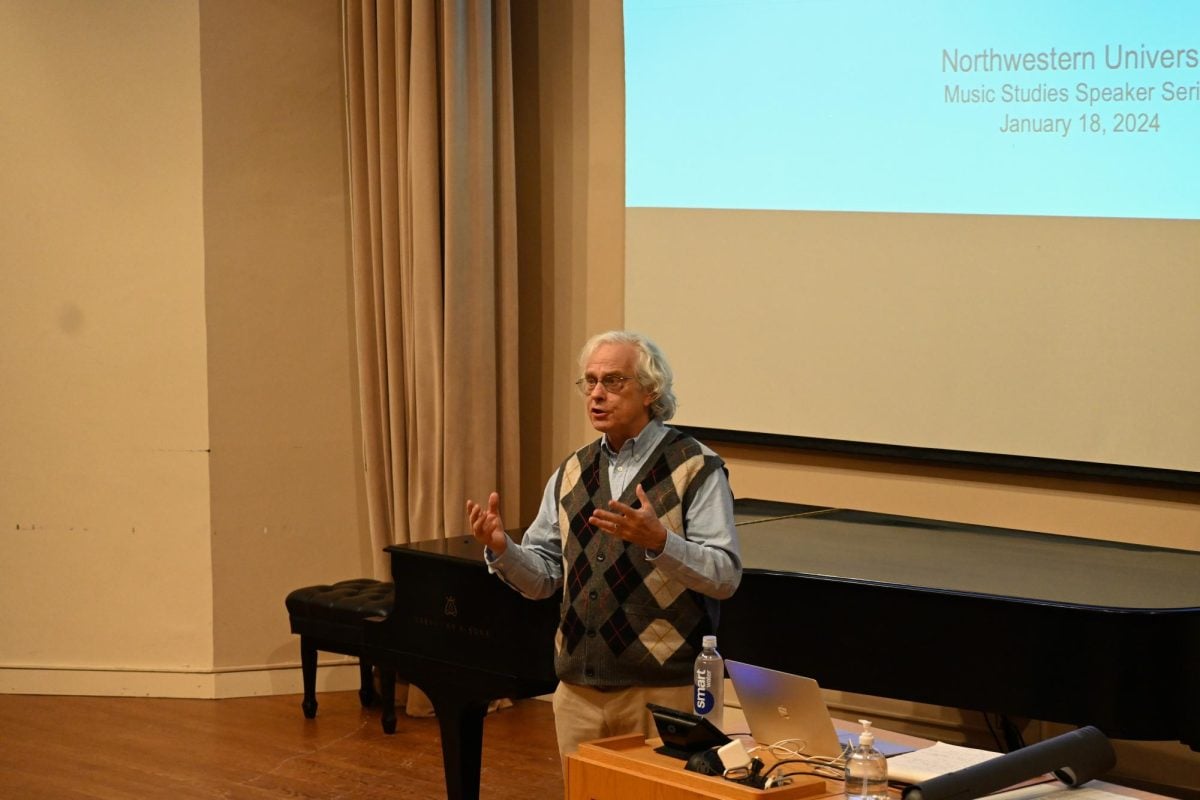The Bienen School of Music hosted Thomas Christensen, the Avalon Foundation Professor of Music and the Humanities from the University of Chicago, for a lecture Thursday in the Regenstein Hall of Music. He covered recent attempts to globalize the history of music theory beyond the Western canon.
The event came as part of Bienen’s Music Studies Distinguished Speaker Series, which brings a music scholar in to speak every quarter, according to Department of Music Studies Chair Drew Edward Davies.
“We try to find the most renowned speakers we can that are not in niches, but rather answer and deal with these broad questions,” Davies said.
Christensen has spent more than 20 years researching the arguments and linguistic models used by early composers through a cultural lens.
He served as the editor of “The Cambridge History of Western Music Theory,” a book which chronicles Western musical theory amongst canon authors from Europe and North America.
“My view was that I was obviously leaving out something,” Christensen said. “I was leaving out the rest of the world, and I even acknowledged it in the introduction at the time that there are other traditions and cultures from Asia, South Asia and Middle East.”
Christensen has been working for the last two years on a research project on the global history of music theory, which he said he had not done before. For this project, Christensen focused on redefining music theory and its global imprint.
He added that there has been a growing trend of music theorists attempting to globalize their studies about music theory.
In June, Christensen convened with other music theorists in Frankfurt, Germany at the Max Planck Institute to discuss implementing an expanded collection of documented archives in the history of music theory, especially from Non-Western regions.
“We’re going to call on some of the solutions that we’ve seen in anthropology, ethnomusicology, general histories and world culture history studies,” Christensen said.
He has focused his research on three major purposes: to redefine what music theory is, to introduce records of historic documentation aside from textual sources and to increase the range of readily available text resources.
Mick Lim, a fourth-year Ph.D. candidate in musicology who attended the session, said he “had no idea that anyone would take on such a large project.”
“When you start questioning music theory at that scale, then what we understand in music theory is starting to morph as well,” he said. “Someone is actually trying to take on such a large project to cover music theory from such a long time span and geographical distance.”
Email: [email protected]
X: @Jerrwu
Related Stories:
— David Bowie’s spirit alive and well at Evanston SPACE — thanks to jazz
— Bienen dual degree students balance workload, pursue interdisciplinary passions
— Bienen seeks to expand classical repertoire, include composers of color






